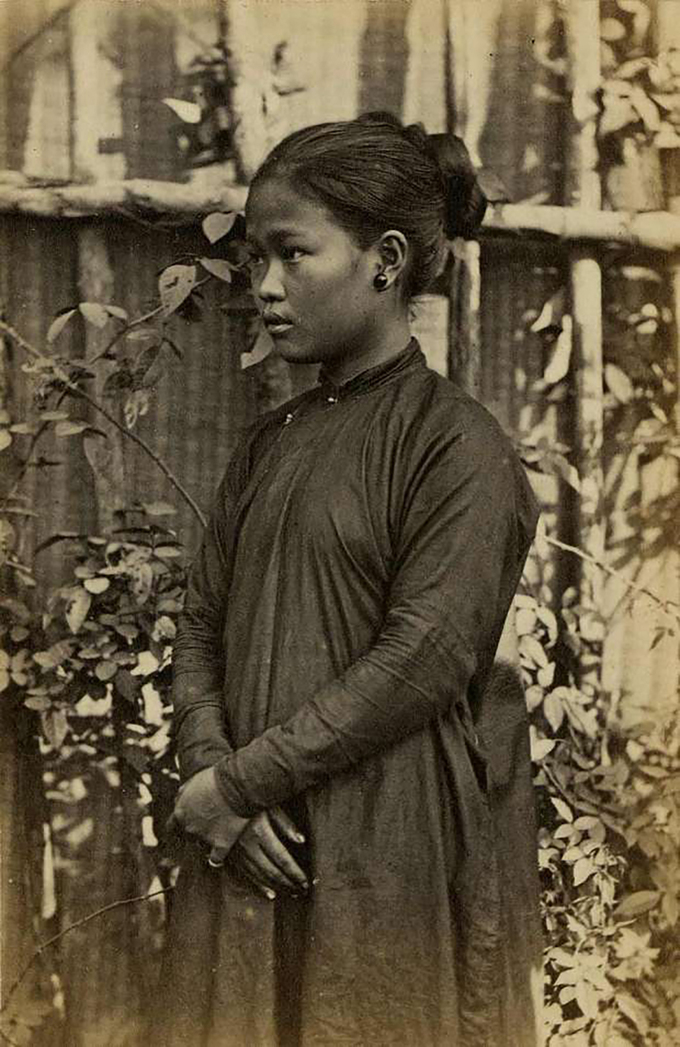 |
| Photo: Terry Bennett |
“Saigon maiden” is among the first photos taken in Vietnam by photographer John Thomson between 1867 and 1868. Ao Dai nam than (five-part dress), created from two pieces of fabric, was preferred by women in the 19th century. The four parts represent the parents of married couples, with the fifth symbolizing the wearer themselves. The outfit always had five buttons, representing Five Constant Virtues in Confucianism, including Kindness, Decorum, Uprightness, Wisdom and Faithfulness.
The above picture belongs to the book “Buổi đầu nhiếp ảnh Việt Nam” (The beginning of Vietnamese photography) by Terry Bennett which introduces the documents of the domestic photography industry from 1840 (when cameras first appeared in Vietnam) to 1950.
| John Thomson was a revolutionary photographer, traveler and geographer from Scotland. He was among the first to travel and document the Far East, exploring its landscapes, people and artifacts. When he returned home, his social photographic documentary on London’s street people secured his reputation. The project built the foundation of photojournalism. Eventually, he became a portraitist for Mayfair’s High Society and in 1881, achieved the Royal Warrant. |
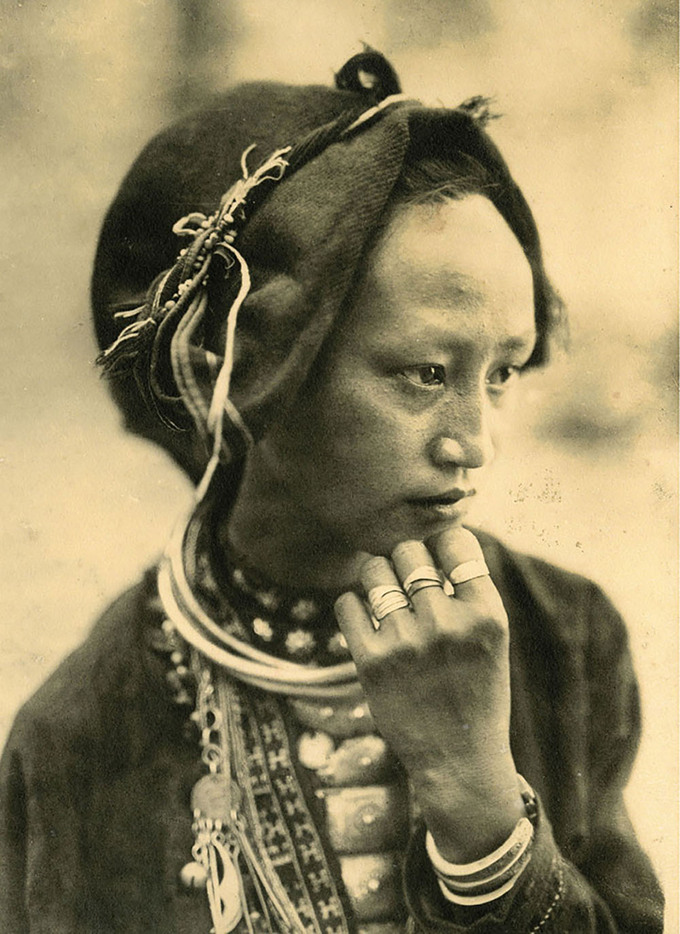 |
|
A Man ethnic woman in Pa Kha village in Son La province was captured by an anonymous photographer in 1925 and printed in foil. |
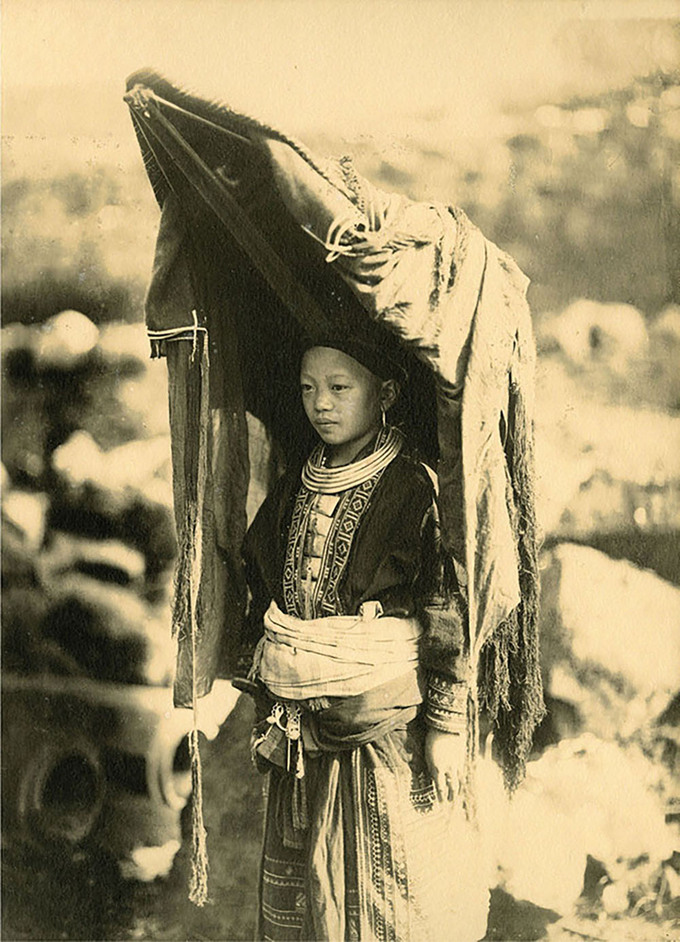 |
| Another Man ethnic woman in Lao Cai province. |
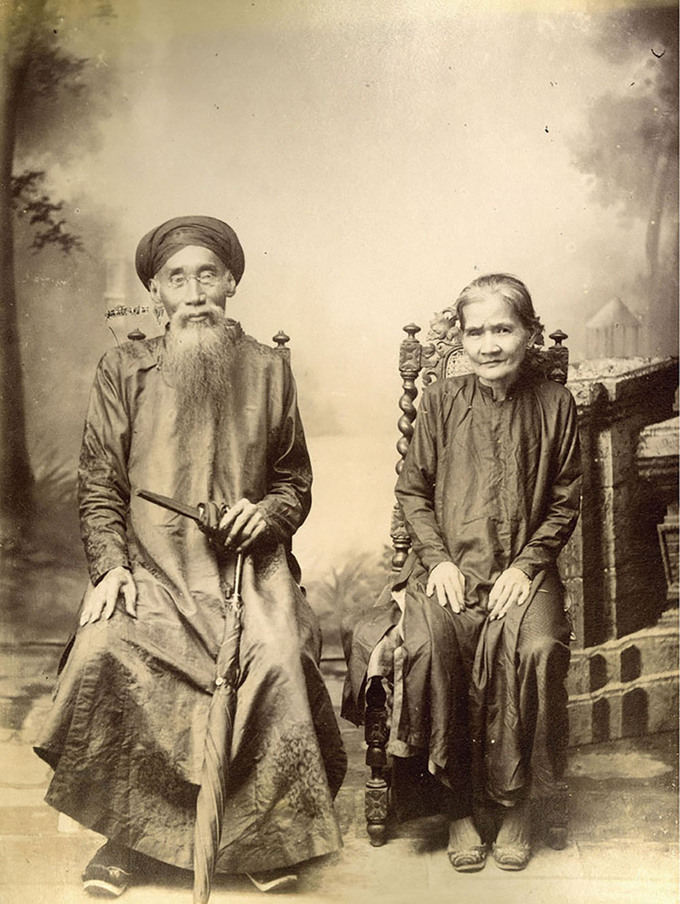 |
|
An old couple was photographed by Aurélien Pestel in 1890. |
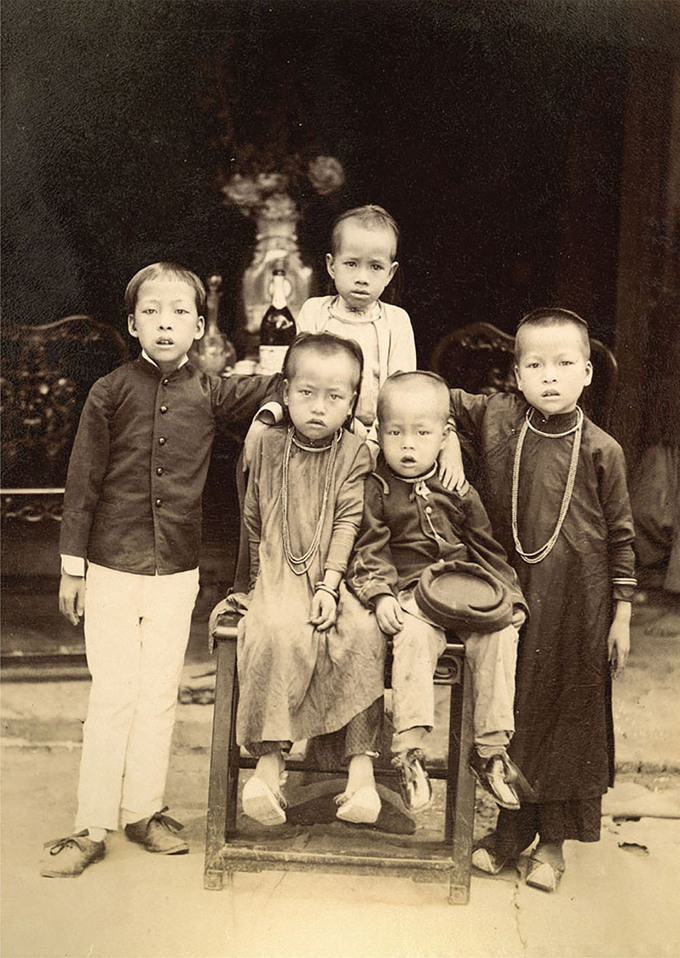 |
| Vietnamese children in the last decade of the 19th century under the lens of Aurélien Pestel. |
 |
| A photo of a Vietnamese family in 1890. |
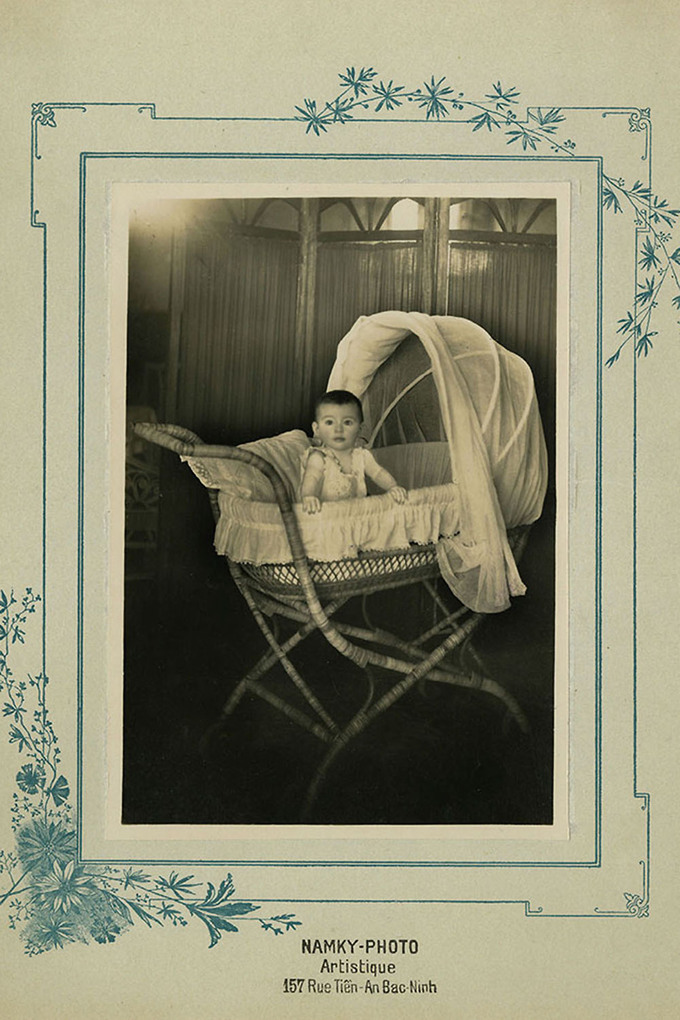 |
| The “Baby in the cradle” picture was taken by the “Namky-Photo” photo shop in Bac Ninh in 1922. |
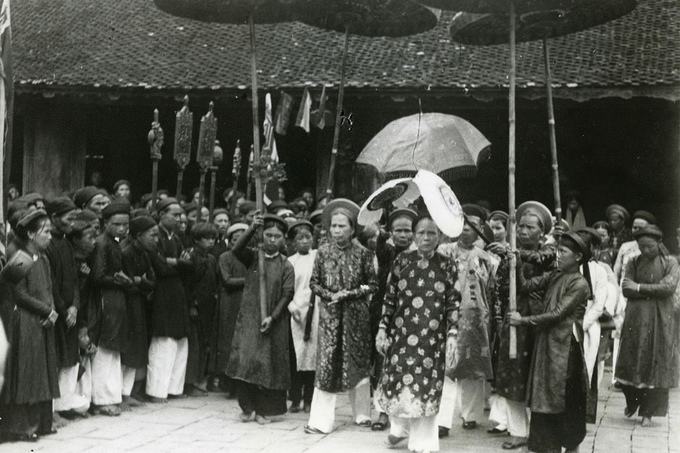 |
| The visit of Empress Dowager Tu Cung, Emperor Bao Dai’s mother, in Thanh Hoa under the lens of Vietnamese photographer Nghiem Xuan Thuc. The book not only tells about the careers of French and other foreign photographers in Vietnam but also several Vietnamese ones. |
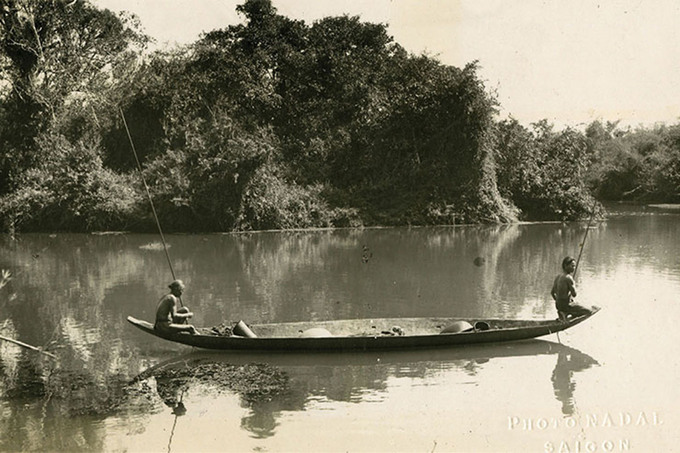 |
|
The book also shows rare photos of scenery in Vietnam more than 100 years ago. The above picture features two local residents catching fish in Saigon in 1920. |
 |
| A corner of Bac Ninh between 1884 and1885 was taken by photographer Charles-Édouard Hocquard. |
|
Charles-Édouard Hocquard was a French doctor and explorer, famous for being a photographer. Born in Nancy, he studied military medicine in Paris at Val-de-Grâce Hospital. He volunteered for the French expedition in Tonkin (now North of Vietnam) in 1883 and explored Indochina, from the Chinese frontiers to the delta of Saigon. His photographs were displayed at the Antwerp Universal Exhibition in 1885 where they were awarded a Gold Medal. He published Trente mois au Tonkin (Thirty Months in Tonkin) in Le Tour du Monde (1889 and 1891) and Une campagne au Tonkin in 1892. Hocquard traveled to Madagascar and Comores in 1894 and became director of the military health service of the French expeditionary troops in Madagascar. He published in 1896 L’Expédition de Madagascar, journal de campagne. He died in Lyons in 1911 from influenza. |
Other photos of Vietnamese women 100 years ago:
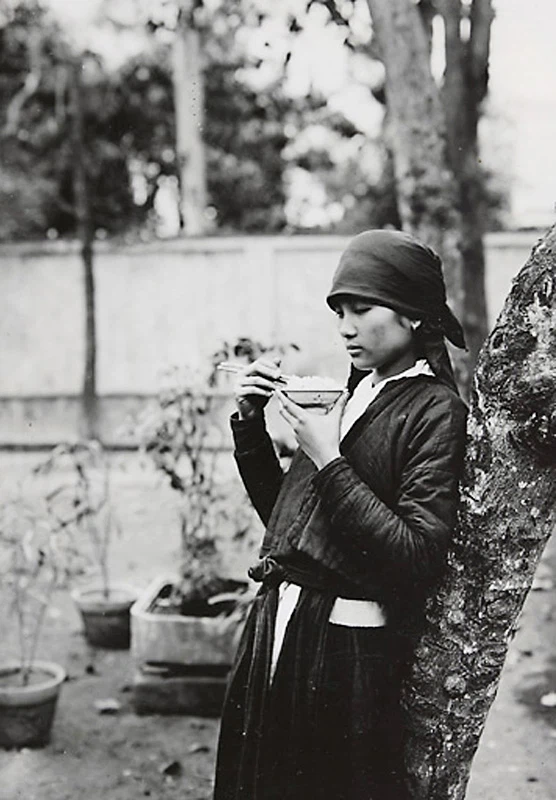 |
| A gentle and timid look of a Vietnamese woman. Photo: Soha |
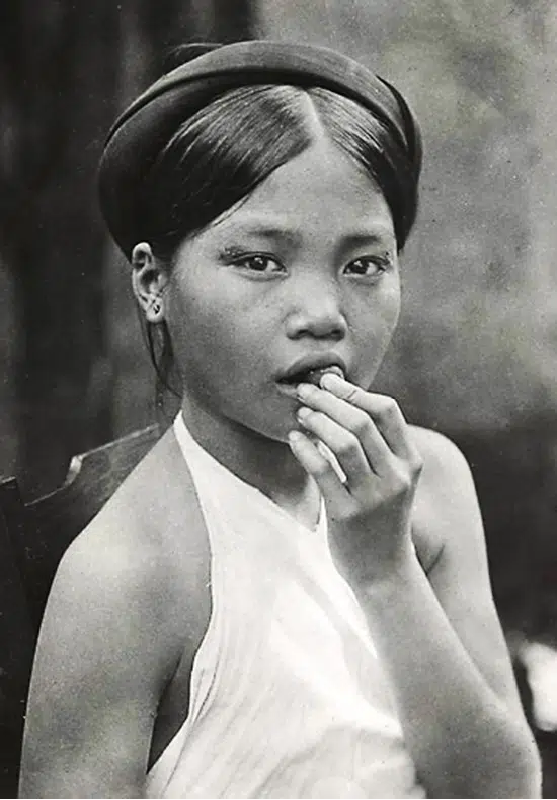 |
| Innocent eyes of a Vietnamese woman chewing a betel nut. Photo: Soha |
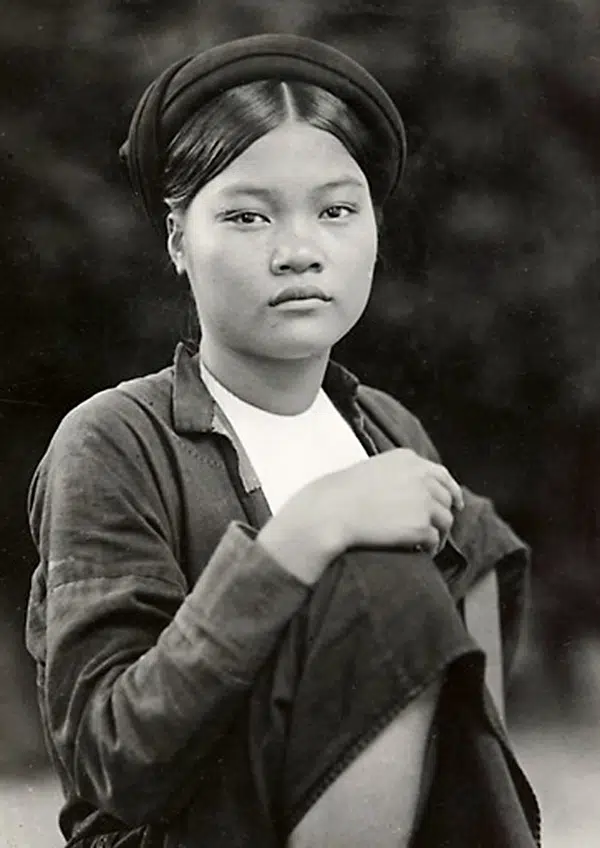 |
| Vietnamese women 100 years ago have a rustic beauty. Photo: Soha |
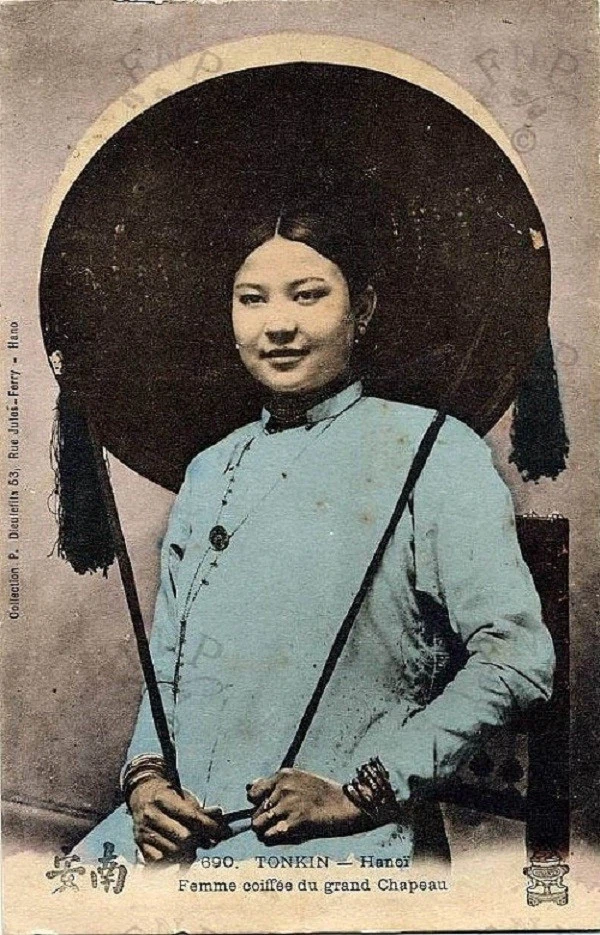 |
| A Vietnamese woman looks elegant in Ao dai and non quai thao (a Vietnamese traditional hat). Photo: Soha |
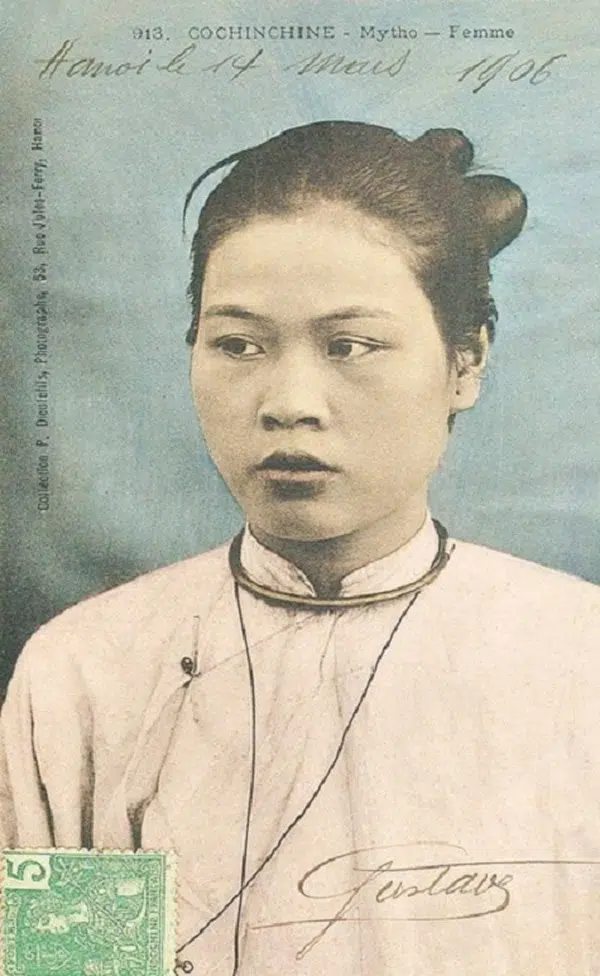 |
| A noble beauty of a Vietnamese woman. Photo: Soha |
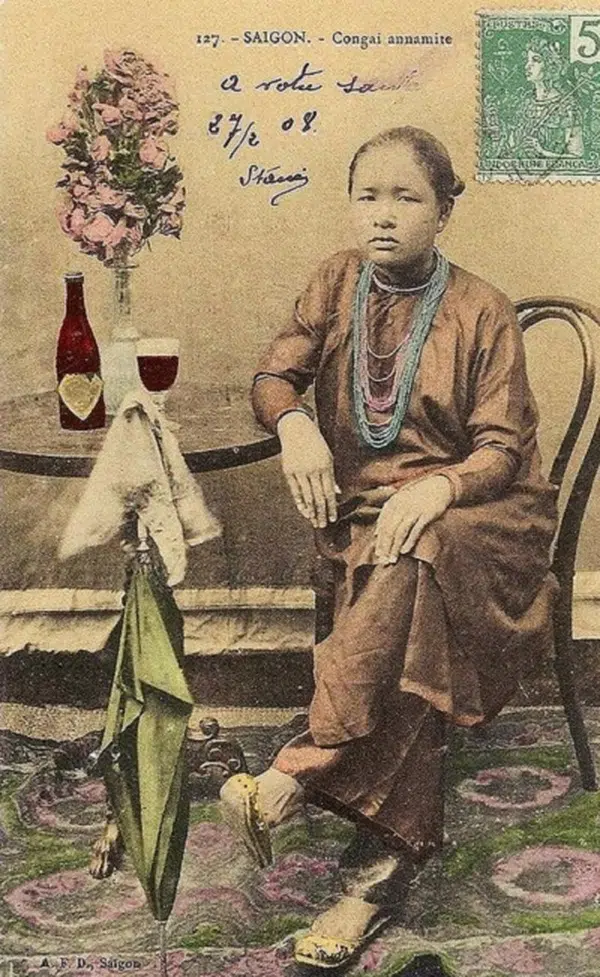 |
| An old Saigon woman in a brown Ao Dai and a beaded necklace. Photo: Soha |
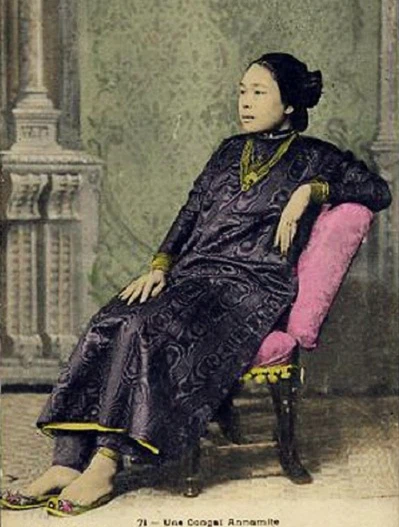 |
| A woman wears Ao Dai with special patterns. Photo: Soha |
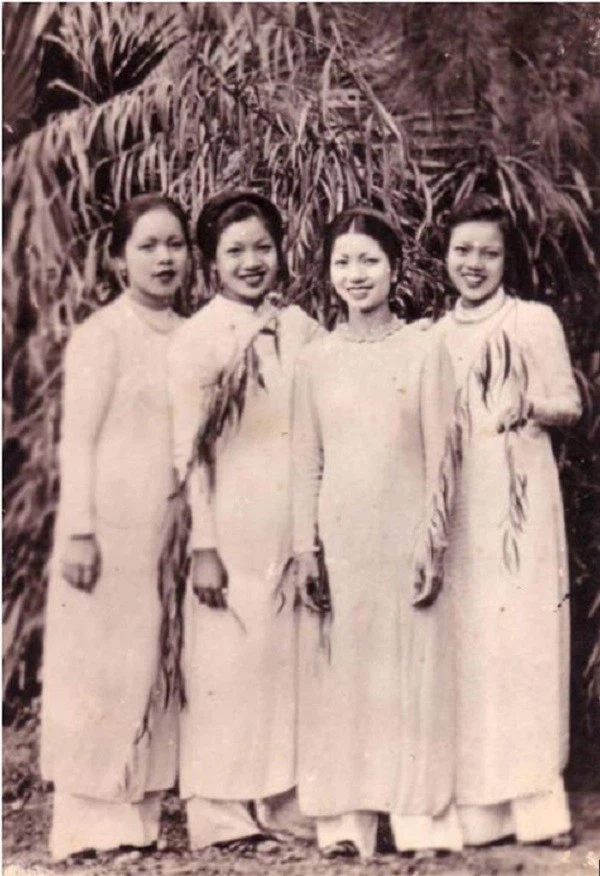 |
| Vietnamese in white Ao Dai. Photo: Soha |



